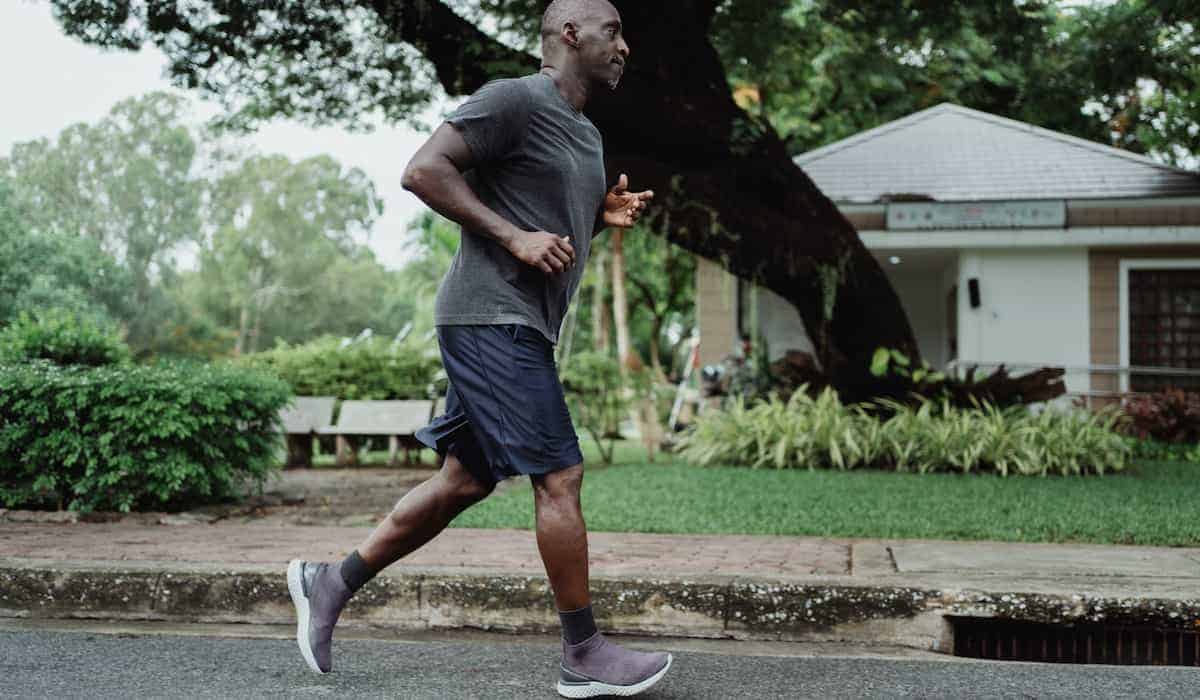Introduction:
Weight gain is a significant concern for everyone in this modern age. Everyone wants to look attractive and fit and wants smart and slim bodies. For these reasons, people are adopting a healthy routine to make themselves beautiful and smart. They are doing different exercises to achieve normal weight. Out of these exercises Running and walking are the most common and popular. Walking vs running, which one is better for weight loss is a hot topic on which debates are taking place for many decades. In this article, we will describe which exercise is effective for weight loss.
Difference between walking and running:
Walking and running both are aerobic exercises. Walking is a low-intensity exercise than running. In walking one foot is always on the ground while in running foot is in the air during each stride and when we land on the ground our body absorbs the impact as three times our weight. Running requires high speed as compared to walking resulting in more effort use. Walking and running both use the same muscles of our body but in running muscle use is maximum while it is low in walking.
Which is effective in burning more calories:

Walking as compared to running requires less effort and uses fewer calories than running. On the other hand, running is intense and requires more calories. 5 km of running uses more calories than walking resulting in fast weight loss. If you want to fast weight loss then running is a suitable option for you. Running requires high effort so, it is hard to continue it for a long time, on the other hand, walking can be tolerated easily.
Research on the effectiveness of running and walking in weight loss:
A Study showed that when compared to walking, running causes more weight loss. During running our body becomes more hypermetabolic than walking so it utilizes more energy. Another Study showed that running also has benefits on mental health and reduces depression and anxiety.
American council on exercise said that a person whose weight is 160 pounds, burns 15.1 calories per minute during running in contrast to walking which burns 8 calories per minute.
Benefits of walking:
Walking is a form of cardio exercise that is of low intensity as compared to running. It is easy to perform and does not require much effort. It is best for beginners who just started exercising. As it is easy to perform it can easily be tolerated. People can easily incorporate it into daily routines. Walking has many positive effects on the body including:
- It increases metabolism
- It increases muscle strength
- It reduces fat
- Has a good effect on the heart
- Prevents joint diseases
- Increases stamina
Benefits of running:
Running is an intense exercise and requires high effort. It is difficult from walking because it requires some struggle and motivation in order to continue it. Running also has many positive effects some of which are:
- It helps in reducing weight
- Research shows that running prevents some cancer
- Running helps is building leans muscle mass
- Running also helps in managing diabetes and cholesterol
- It strengthens bones
- Running also has a good effect on mood
Tips for effective running:
As you know how important is running and how it affects our bodies. Besides positive effects, there are also some negative things about running. It is intense exercise so there are increased chances of wear and tear in joints and muscles, also some medical condition requires close attention during exercises like hypoglycemic events and ischemic heart diseases. Below are some tips for maximum benefit and minimizing risks.
Start slow:
If you are a beginner then don’t rush for intense exercise always start gradually. Start with walking and increase the speed gradually so that your body becomes used to it. When you reach your full potential then try to do it consistently and never take a break.
Proper footwear:
When you go for running always wear proper footwear. Using defective footwear can lead to injury to the foot that can damage muscles and bones. Also, it is very difficult to run in improper footwear.
Setting goals:
Always set your goals and daily check your progress. There are many apps and charts available that help in setting and achieving goals. Exercising without any aim is of no benefit. Setting your goals and achieving that give motivation to you.
Consistency:
Consistency is key when it comes to losing weight. There are no magic pills available for weight loss. Regular working out in the proper way helps in losing weight fast. Walking and running both are good for weight loss but running gives results earlier than walking.
Tips for effective walking:
Walking is a great startup for beginners, it prepares you for the next high-level exercises like running and HIIT. you can get maximum benefits from walking by implementing these tips:

Inclination:
Walking on flat ground is good when you just start it but in order to get maximum benefit you can incline your angle. You can use hilly tracks in which going forward and increasing ground height will make you maximum benefit from it. The inclination is a good technique, it requires more energy than just walking on the ground and hence more calories burn.
Wearing weight:
Another good technique is wearing a weight during walking. It will also increase your effort and give maximum benefit. Always start with low weight as it can damage your muscle and may cause injury.
Incorporate intervals:
You can also incorporate intervals into your walking like fast walking for some time then slow walking. These intervals help in increasing metabolism and give better results than walking alone.
Conclusion:
Walking vs running which is better for weight loss is a hot debate but both are effective in weight loss. If you are just a beginner then start with just walking and after increasing your stamina you can shift to running. Walking requires less effort so its result takes time on the other hand running is intense and it helps in quick weight loss.
Apart from exercises you also need to take a healthy diet so your body is supplied with the necessary nutrients needed for normal functioning of the body.
